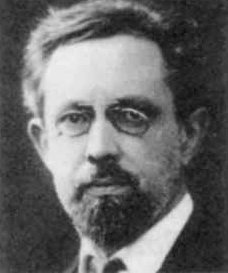A Quote by Ernest Gellner
Capital, like capitalism, seems an overrated category.
Related Quotes
I don't like the idea of capitalism anyway. Because it's not capital we are talking about; it's knowledge and creating well-being. Because I mean, that gets people on the wrong track when it's capital and how we allocate capital - no. How do we create the Republic of Science in America? How do we have a system of mutual benefits where people succeed by helping others improve their lives? So I don't like that at all.
I know the difference between venture capital[ism] and vulture capitalism. Venture capitalism is a good thing, comes in, gives that gap funding to help these companies get off and get started creating jobs, and work. But Mitt Romney and Bain Capital were involved with what I call vulture capitalism. And they walked into Gaffney and took over that photo album company for no other reason than to basically pick the bones clean. And those people lost their jobs.
The brilliant creative core of capitalism ... is the story the entrepreneurs and capital investors tell themselves about the future. How they intend to alter it, what they expect to gain in return, where they will raise the capital to accomplish their vision. Many of their stories turn out to be flawed or mistaken, of course, but the capacity to envision a set of future events and then act to fulfill them is a central source of capitalism's strength and its dominance of society.
The kind of capitalism we are seeing today under this expansion of property into living resources is a whole, new, different phase of capitalism. It is totally inconsistent with democracy as well as with sustainability. What we have is capital working on a global scale, totally uprooted, with accountability nowhere, with responsibility nowhere, and with rights everywhere. This new capital, with absolute freedom and no accountability, is structurally anti-life, anti-freedom.
The idea that the profits of capital are really the rewards of a just society for the foresight and thrift of those who sacrificed the immediate pleasures of spending in order that society might have productive capital, had a certain validity in the early days of capitalism, when productive enterprise was frequently initiated through capital saved out of modest incomes.
It seems like -- especially in religious circles and Christian circles, we want to first talk about the things we're opposed to. That means we have to categorize that person. We can call them emergent or neo orthodox or someone who feminizes scripture. There's the category, let's stick them in the category then just blow up the box and him along with it.
When the rate of return on capital exceeds the rate of growth of output and income, as it did in the nineteenth century and seems quite likely to do again in the twenty-first, capitalism automatically generates arbitrary and unsustainable inequalities that radically undermine the meritocratic values on which democratic societies are based.
There's a real difference between venture capitalism and vulture capitalism. Venture capitalism we like. Vulture capitalism, no. And the fact of the matter is that he's going to have to face up to this at some time or another, and South Carolina is as good a place to draw that line in the sand as any.
Anyone who studies the energy predicament understands its connection with the operations of capital - and by this I do not mean capitalism as an ideology, I mean the behavior of acquired wealth and its deployment for productive purpose. (A lot of educated idiots don't understand this, and we waste a lot of time blathering about capitalism.)








































